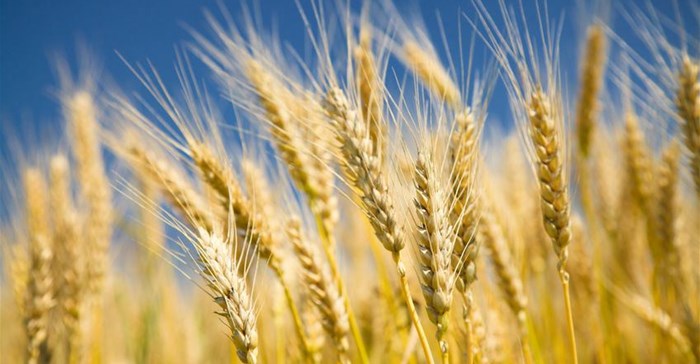Technological innovation - a catalyst for Africa's growth

The agricultural sector is regarded as one of the most critical industries for the African continent due to economic potential and is projected to become a US$1trillion industry in sub-Saharan Africa (SSA) by 2030. More than half (58.8%) of survey respondents consider investment in Africa as an opportunity for their businesses to expand.
The top four countries they are planning to invest in are Zambia, Botswana, Tanzania and South Africa.
Agriculture is currently standing on the edge of a second green revolution. This revolution will entail fundamental shifts in how the agricultural sector utilises and implements innovative technology to improve output in a sustainable manner and address the need for greater food security globally.
These were some of the highlights of PwC’s latest ‘Africa Agribusinesses Insights Survey 2016’, released recently.
“Currently, there is a second green revolution underway. There is a desperate need for food security and therefore higher agricultural output without compromising resources in the process,” said Frans Weilbach, Agribusiness industry leader for PwC Africa.
“Advances in technology and innovation are the key to the future of agriculture as agribusinesses strive to feed an increasing population against a background of climate change, scarcity of water and a host of environmental concerns.
“Innovative technology and advancements in productivity are becoming increasingly important as pressure mounts on food systems,” says Weilbach. “The global population is growing rapidly and the climate is ever-changing.
“Agribusinesses are making changes to go high-tech. From data-gathering drones to artificial intelligence farming, technology is making the agricultural sector more precise and efficient as agribusinesses push for increased profits.”
Strategic challenges: Africa
PwC’s Agribusinesses Insights Survey 2016 was carried out among a group of African agribusinesses that are mainly focused on delivering agricultural and related services to primary producers. The survey focuses on the strategic challenges that agribusiness leaders face in their businesses – and it highlights areas where technological innovation is already taking place and where it can make a difference in the future.
In addition, the survey provides viewpoints on the agricultural sector in Nigeria and Kenya.
Survey respondents, however are less optimistic about revenue growth over the next 12 months compared with their expectations a year ago. The majority of agribusinesses (46.2%) are expecting revenue growth of between 0-5%, and 26.9% of businesses expect it to be between 6-10%.
The biggest challenges to business growth cited by business leaders were access to technology, the scarcity of natural resources and supply-side uncertainties.
African agribusinesses also feel that there is a long way to go toward better support from government in the sector. For example, businesses are of the view that government does not offer sufficient tax incentives to ensure international competitiveness. Furthermore, they say government is not doing enough to develop skilled workers in the sector.
Edward Kerich, PwC director in Kenya, says: “Kenya relies heavily on the agricultural sector as the mainstay of its economy, with agriculture contributing 29% of GDP. Kenya is SSA’s leading tea exporter and one of the world’s largest black tea producers. A significant development in the agricultural sector is growth in the number of privately owned tea factories outside of those owned by the KTDA and the large multinationals in the country.
The contribution of the tea industry to the Kenyan economy is expected to continue growing, and the benefits realised will be enhanced as some factories move to cheaper renewable energy such as hydropower production.”
Rasheed Rahji, PwC partner in Nigeria, says: “Agriculture contributed 24.18% to real GDP in Nigeria in Q4 2015. This is mainly due to mechanised farming and to other activities in the agribusiness value chain. It is being fuelled by the Government owing to its focus on agribusiness as a driver for poverty alleviation, and in part by continued investment by commercial farmers.
“Given the fall in the international price of crude oil over the past 18 months, the Government has encouraged agricultural exports as an alternative foreign exchange earner. A number of challenges in the agricultural sector remain to be addressed. These include inadequate infrastructure, access to credit, and the training and education of smallholder farmers in modern farming techniques. Adequate focus on these matters would certainly assist in improving Nigeria’s food security, grow its GDP and increase its foreign earnings.”
Risk management
African agribusinesses also indicated they have maintained focus on risk management, with the majority of survey respondents (95.2%), periodically conducting a formal risk assessment. It is also positive to note that 53.8% of respondents prepare an integrated report.
Human resources (HR) models and processes are beginning to evolve, with more emphasis being placed on technology to improve networks and data. Agribusinesses are looking to their HR teams to provide not only basic services and transactional activities, but also strategic insights and workforce intelligence.
Businesses indicated internal HR capacity, labour unrest, employee turnover, and communication between employees and management, as the most challenging human resources matters.
Although there is widespread consensus on the reality of global climate change, much uncertainty still exists when it comes to the exact measurable impact of changes in climatic conditions on agriculture and food security.
The majority of agribusinesses are of the view that climate change will have a significant impact on SSA agriculture in the future – 41.2% indicated that there will be a significant impact in the short term and 35.3% that there will be an impact over the next 20 years.
In addition, 35.3% of agribusiness leaders indicated that they are considering investment in renewable energy, while 29.4% have already done so. The main forms of renewable energy that agribusinesses have invested in are solar energy and biogas.
Increased pressure on the profitability of farming and agricultural business activities is forcing the agricultural sector to be an early adopter of new technologies in order that it may improve the productivity and profitability of the sector.
Artificial intelligence
Survey respondents noted the availability of real-time data as the biggest opportunity for technological innovation. In addition drones are fast becoming a real green-tech tool. Global research also shows that artificial intelligence (AI) farming will be the main enabling factor in increasing the world’s agricultural production capacity to meet the demands of the growing population.
This goes hand in hand with precision farming and other technology trends. The majority of survey respondents (76.5%) agree that AI farming will make a major contribution to increasing capacity in Africa over the next 10 years. Only 47% of businesses had already invested or plan to invest in the development of AI farming capabilities for primary production. This could be due to the cost of implementation, which was noted as the biggest restriction to the use of AI farming capabilities (64.7%).
All agribusinesses indicated that they felt a responsibility towards food security. Food quality and safety is the one pillar of food security that respondents indicated they can contribute towards the most followed by availability and affordability. It is also positive to note that all businesses indicated their agribusinesses contribute towards corporate social investment (CSI). The top three areas of investment are: healthcare, education and personal upliftment.
“It is predicted that technological innovation will act as a catalyst in lifting agribusiness to the next level in Africa. The winners will be those agribusinesses that seize the opportunity to create new opportunities through technology – they will be able to reach their strategic goals faster and more efficiently,” concludes Weilbach.
Source: African Press Organisation

APO is the sole press release wire in Africa, and the global leader in media relations related to Africa. With headquarters in Dakar, Senegal, APO owns a media database of over 150,000 contacts and the main Africa-related news online community.
Go to: www.bizcommunity.com/PressOffice.aspx?cn=apogroup





















